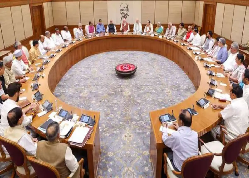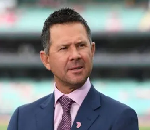The Modi Cabinet has approved the ‘One Nation, One Election’ initiative, which aims to synchronize Lok Sabha and state assembly elections into a unified schedule. This decision follows a review of the high-level committee’s report on the proposal.
Report Details
In March 2024, the high-level committee on simultaneous elections submitted an extensive 18,626-page report to President Droupadi Murmu. The committee, chaired by former President Ram Nath Kovind, conducted extensive consultations with various political and social groups.
Political and Public Support
The report reveals that 47 political parties contributed their views, with 32 supporting simultaneous elections. Furthermore, a public notice garnered 21,558 responses, with 80% in favor of the proposal.
Expert Opinions
The committee sought input from legal experts, including four former Chief Justices of India, twelve former Chief Justices from major High Courts, and four former Chief Election Commissioners. The Election Commission of India also provided its perspectives. Additionally, leading business organizations like the Confederation of Indian Industry (CII), Federation of Indian Chambers of Commerce & Industry (FICCI), and the Associated Chambers of Commerce and Industry of India (ASSOCHAM), along with prominent economists, were consulted to evaluate the economic impact of staggered elections. These organizations warned that staggered elections could lead to inflation, slower economic growth, and disruptions in public spending and social cohesion.
Upcoming Recommendations
The Law Commission is anticipated to release its report on simultaneous elections soon. Early indications suggest that the Commission might recommend coordinating elections for all three tiers of government—Lok Sabha, state assemblies, and local bodies such as municipalities and panchayats—beginning in 2029. The report may also propose provisions for a unity government in cases of a hung parliament or no-confidence motions.



